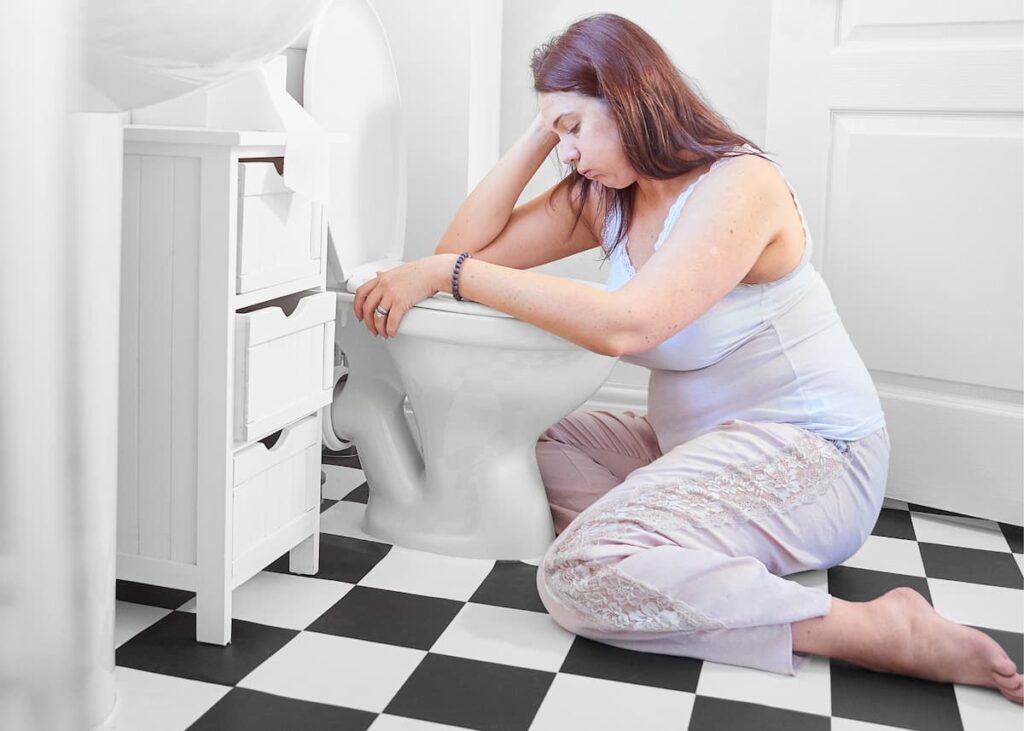Pregnancy can be a wonderful experience, but it also comes with its share of challenges. Morning sickness is one of the most common symptoms, and it’s not usually dangerous. However, it can be quite severe for some women. Severe morning sickness is a rare pregnancy related condition that can lead to dehydration, which is dangerous both for you and the baby. Infusion therapy can help rehydrate you safely and effectively. It’s important to discuss any health concerns you may have during pregnancy with your doctor, but in this blog post, we’ll discuss when you should seek infusion therapy during pregnancy so you can be aware of some of your options.
IV therapy for severe morning sickness during pregnancy
IV infusion therapy is a common treatment for dehydration, hangovers, or sickness. It helps flush out toxins and puts you on the fast track to recovery. It can treat many different illnesses, from a common cold to life-threatening conditions, and one of the most common conditions it’s used to treat is dehydration due to vomiting, whether it’s caused by pregnancy or some other condition.
During the first trimester of pregnancy, many women suffer from morning sickness. It usually disappears around the sixteenth or eighteenth week. If you’re experiencing persistent morning sickness several times a day and are losing weight or feeling dehydrated, this is considered severe morning sickness. Dehydration during pregnancy is potentially detrimental to your baby’s growth and your health. Talk to your doctor, they may recommend an IV drip for dehydration.

Can I do an IV drip while pregnant?
Yes. Infusion therapy can help you get all the vitamins, nutrients, and hydration your body requires to have a healthy pregnancy. IV infusion therapy is used to safely and rapidly distribute vitamins, nutrients, and electrolytes into your bloodstream.
It aids in the replacement of fluids and nutrients lost from your body due to morning sickness during pregnancy. It supports your baby’s growth by aiding in rehydrating. Calcium or folic acid can also be given via an IV drip to help the baby’s development.
Does everyone get morning sickness during pregnancy?
Almost. Around 90% of women experience some form of morning sickness. Despite the day, it can happen at any time, and though it usually only lasts until the second trimester, for some women it happens throughout their pregnancy.
Of the 70% who experience morning sickness, most experience nausea and vomiting once or twice throughout the day. Up to 3% of women suffer from morning sickness hyperemesis gravidarum (HG), most commonly known as severe morning sickness. In those cases, women feel nauseous for several hours a day and vomit more frequently. This can lead to weight loss and dehydration.
If you’re pregnant and vomiting more than three times a day, have lost five pounds or more, and are dehydrated, talk to your doctor. Signs of dehydration include feeling dizzy when you stand up, dark urine, and little or no urine production.
If you have moderate or mild morning sickness
Even if your morning sickness is not severe, it’s far from pleasant. There are many things you can try that might help feel better if you have mild or moderate morning sickness
- Keep a few crackers at your bedside and eat some before getting up. This might help settle your stomach.
- Eat frequent small meals instead of less frequent, larger meals.
- Try bland foods instead of spicy or fatty foods. Dry toast, gelatin, broth, tofu, banana, rice, and plain baked potato are all good options.
- Have a healthy snack in between meals, some celery or apple slices with peanut butter, yogurt, or nuts.
- Hake sure you’re hydrated throughout the day, and drink lots of fluids, especially water.
- Eat a snack when you take your prenatal vitamins, if it contains iron, take it before you go to bed.
- Identify odors or situations that make you feel nauseous and avoid them as much as possible
- Try ginger-flavored candies, ginger tea, ginger ale, sour or fizzy drinks
- Get plenty of fresh air and keep rooms well ventilated
- Keep some fresh, pleasant scents like lemon or mint
- Make sure you get plenty of rest
What is infusion therapy?
IV infusion therapy is simply a way to receive medication or fluids. It involves a needle or catheter injected intravenously to deliver the solution directly into your bloodstream. This method is particularly useful if someone is unable to take oral medication and to maximize the effectiveness of the nutrients and vitamins in the solution because it bypasses the digestive tract entirely.
What IV drips are recommended?
There are several different options. The fluid itself immediately resolves many symptoms by helping with physical dehydrations and overcoming the intravascular fluid deficit. Other options that could significantly improve symptoms are Ondansetron (Zofran), Diphenhydramine (Benadryl), and B6 (pyridoxine).
Are some women more at risk for severe morning sickness?
Yes, there are a few things that increase the risk for severe morning sickness, these include women who:
- Are having multiple babies. Twins, triplets, etc.
- Women whose close family members have a history of severe morning sickness, or who have one themselves.
- Are pregnant with a girl
- Suffer from motion sickness
- Suffer from migraines
- Are overweight
- Has trophoblastic disease

The aim of IV vitamin therapy during pregnancy is to guarantee both mother and baby have the fluids and nutrients they require for optimal health. Dehydration can cause low blood pressure, which has a significant impact on both the mother and her developing baby. IV therapy can help ease symptoms and make sure you have a healthy pregnancy. If you have any concerns about your morning sickness, talk to your doctor.
